Clare: My role at ELRIG is that of a Program Manager. Along with the Science Strategy working group, I am responsible for putting all the speakers together for all our conferences, forums and networking events.
I also liaise alongside the vendors for partner sponsorship opportunities that we offer.
Tara: I am an Events Manager, working to support Clare’s responsibilities and ensuring that event organization runs smoothly. As well as this, I touch upon finance-related tasks for ELRIG, such as the day-to-day finance, budgeting and forecasting processes.
How did you become involved with ELRIG?
S: I have been involved in the drug discovery sector for a long time, starting in 2000 at a company called DiscoverX to promote assay tools in the drug discovery industry. During this time, high-throughput screening was a budding industry, and across the U.S., automating laboratory processes were widely taking place.
I realized that the products I was promoting required automation, but they needed support to do this. A movement then started across the U.S. called the Laboratory Robotics Interest Group (LRIG).
After realizing that Europe would benefit from LRIG, a group of high-throughput scientists and vendors got together to create ELRIG, the European Laboratory Robotics Interest Group.
Over the years, my role has transitioned from a volunteer to an employee to working full-time as the CEO.
I have always supported ELRIG because I feel that it has significantly contributed to the entire drug discovery community.
ELRIG’s transition from laboratory robotics to life science research interest groups has resulted in a change of name to the European Life Science Research Interest Group. As innovations in the drug discovery field have moved further than automation, we have moved away from just robotics and cover anything to do with biology, artificial intelligence and software support.
C: My background is in IT service management and IT project management. I began working at ELRIG around 2016, transitioning from invoicing supportive work to the programming of our events.
Our small operational team enables frequent collaboration where you can get involved with many aspects of the organization. We have the support of an amazing board, all volunteer-led and a supportive, progressive community.
T: I originally joined ELRIG in a finance capacity in 2011. My role has since evolved to become involved with events. I love working with ELRIG and admire the support it gives the life sciences industry.
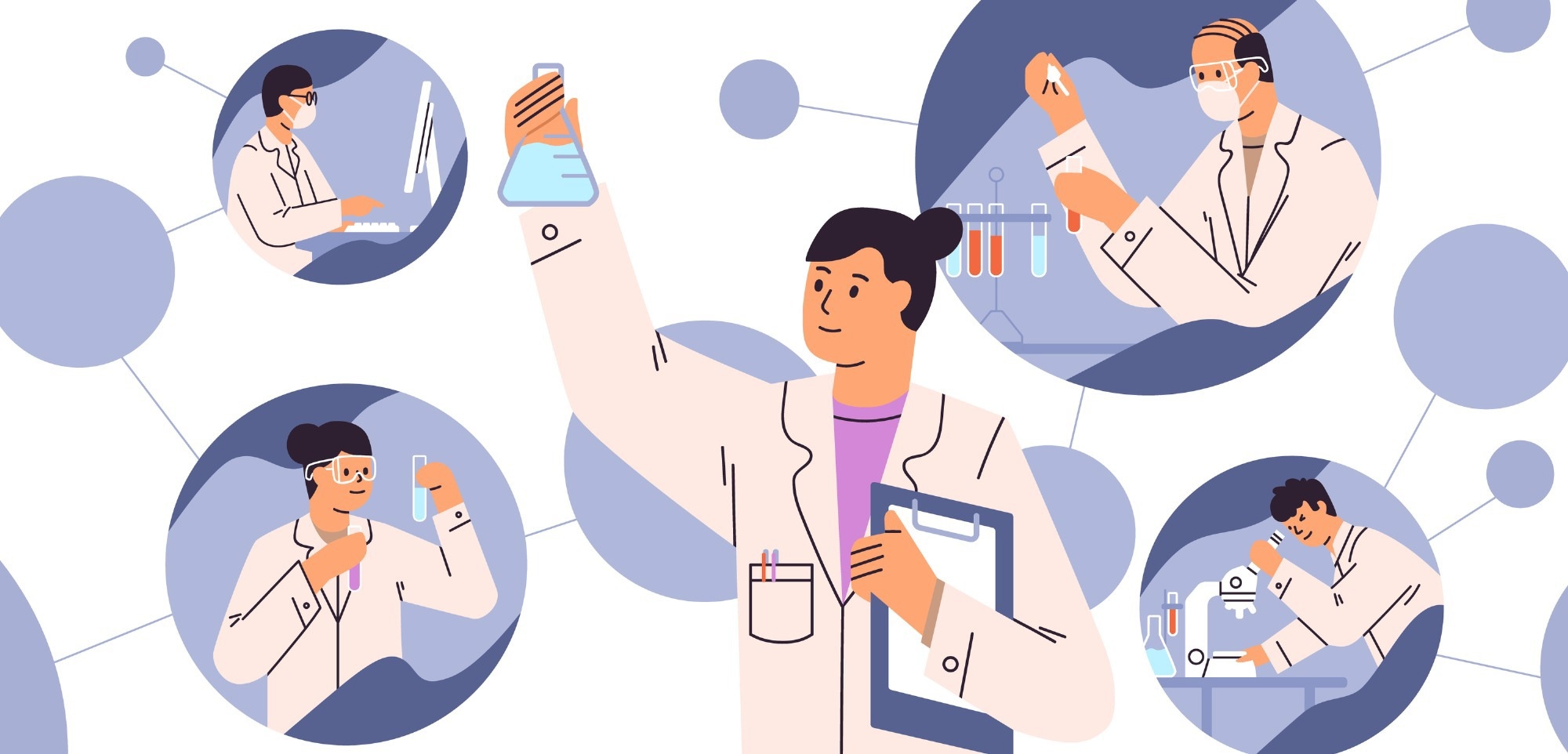
© GoodStudio/Shutterstock.com
ELRIG aims to provide outstanding scientific content to the life science community. Can you tell us more about ELRIG’s mission and how you fit into the life sciences research and industry ecosystem?
S: ELRIG is a learned society that provides the best science content possible on an open-access basis to the drug discovery community. As a learned society, we organize conferencing events with specific themes and topics that are very pertinent to the drug discovery world. We believe face-to-face conferences are the best way that we can carry out ELRIG’s mission, which is to collaborate, network and kickstart innovation.
Innovation is at the heart of the drug discovery community. The field is about finding pressing medical needs, which means that you cannot use the same route from the past; you have to find something new.
C: Regarding our equality and diversity, we have aims and guiding principles that were launched at Drug Discovery last year. We have been working extensively with a group called EDIS, who have been helping us and guiding us as we go on this journey.
Our main guiding principles are: all of our events are inclusive, and we strive to remove any barriers; we ensure diversity by understanding our delegate base and trying to make sure we replicate that across our speakers.
T: We take care to look after all of our vendors; after all, not all can afford a full-priced booth. We understand that these organizations are at different stages of their development and endeavor to support all businesses.
While we have a thorough commercial brochure, we encourage all vendors to come and speak to us so that we can help them achieve their goals at ELRIG’s events. We also recognize and allow vendors who are not sponsoring an event to attend and benefit from networking opportunities.
ELRIG is also free to attend; the only money flowing through the organization is through the vendors. As such, ensuring that the delegates who attend our events are of high quality is a key part of ELRIG’s mission. Over the years, I have been able to see how the quality of delegates continues to improve – it is incredible.
Vendor sponsorships allow us to cover event costs such as refreshments and marketing. We are lucky that we have great support from some pharmaceutical businesses, including GSK, AstraZeneca, MSD and many more. They recognize that we are not-for-profit and understand our place in the life sciences industry, helping us continue to do the business we do.
ELRIG’s values and purpose are intertwined, as without accessibility, diversity and inclusivity, innovations and collaborations are stifled. As a not-for-profit organization, each of your events are free to attend. What advice would you give to other scientific societies to positively shape the sector’s future?
S: I do believe that there is a great opportunity for publishing – it is a great way of getting a very detailed message out. Still, it is a passive message, and I think that there is a need to come back to face-to-face for personal interaction.
In my opinion, ELRIG’s content is a great example of what other societies could learn to do. If you put on great content, you will attract a high-quality, diversified set of delegates, and the vendors will soon follow.
My encouragement would be to connect the two arms of other learned societies, joining your publishing business model with face-to-face events.
Other than this, I think it would be very interesting to connect the translational, applied side of biology to the industry. Our most recent event, for example, reported that around 65% of delegates were from industry and the remaining were predominantly from academia. One great idea is to try and connect these groups and bring them together.
C: We believe it is important to share our Equality, Diversity and Inclusion (EDI) principles with the broader community, launching a lot of content at the last Drug Discovery event. For example, we organized workshops, talks and presentations in the hope that by spreading the word, we can help others start their own EDI guiding principles.

© bangoland/Shutterstock.com
Drug Discovery 2022 was ELRIG’s most recent and most successful event, bringing together over 1,500 delegates and 127 exhibitors from across life sciences and drug discovery. What are some of the highlights from the event?
S: When we wandered around on the first morning and looked in the auditoriums, they were all full and continued to be full throughout the day. This just shows the draw of science. Equally, when we walked around the exhibition booths, we saw that the exhibitors were over busy.
We had early career professional activities and a technology theater, both completely full - it was all fantastic. The other amazing thing is that we sold about 30% of Drug Discovery 2023 at that meeting.
C: For me, the amount of networking is certainly a highlight to mention. Repeatedly I was told, "I need a third day. I've lost my voice. I haven't stopped talking. I've seen so many people."
From a speaker point of view, we had full attendance. Everything ran smoothly, and we can attribute this success to the three of us and our other team members, who planned extensively. As well as this, we have huge support from our board and our in-person volunteer team, who help to cultivate a nice atmosphere at our events.
T: A highlight for me was the success of building the auditoriums into the hall space, despite it being the first time we did it. What we felt it would bring to the meeting paid off.
One area that ELRIG is heavily involved in is that of Early Career Professionals (ECP), with Drug Discovery hosting four skill training sessions.
As interest in the scientific sector, especially life and medical sciences, grows, what are the major barriers these Early Career Professionals face and how does ELRIG help to tackle them?
S: The ECP community faces many barriers in attending high-profile meetings across the scientific sector; for example, many individuals may not possess sufficient funds to purchase a pass to attend. It was important for us to give access to the ECP community as much as we possibly could by not having the ticketing element.
We also want to support the professional growth of the ECP community, which makes up about 30% of the ELRIG community.
With the influx of funding and investment into the life sciences community, the growing drug discovery community needs new talent and researchers to join it. ELRIG has an absolute duty to ensure that we start to bring that next generation into the drug discovery community. The best way to encourage this career growth is to meet other ECPs and senior professionals that can offer guidance and mentorship.
C: We are very supportive of the ECPs that visit our events, putting on several events that facilitate interactions with senior members and poster sessions where they can discuss their research with our scientific community during our events.
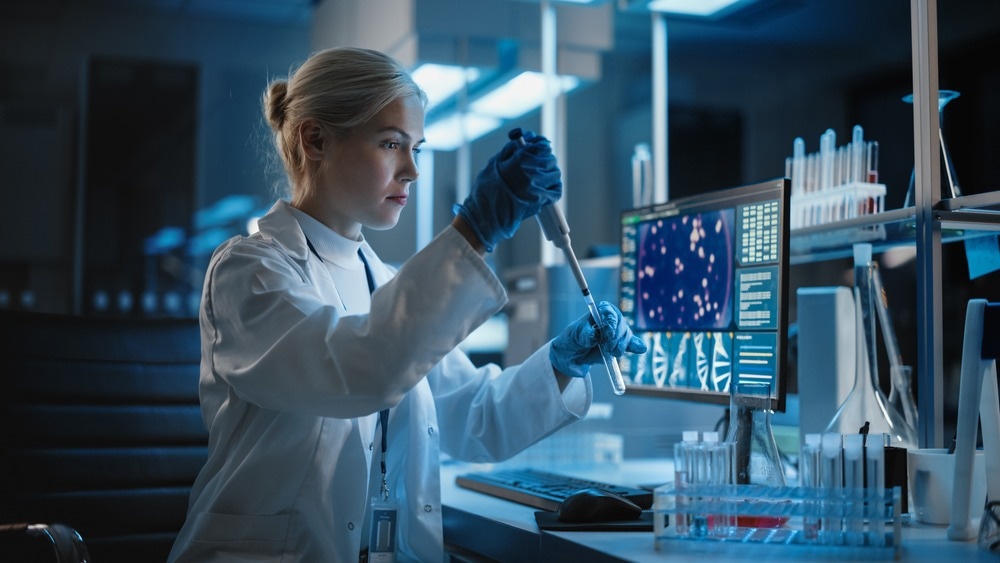
© Gorodenkoff/Shutterstock.com
Investment in the UK life sciences and healthcare industry is at an all-time high, boosting research innovation and commercial maturity. How do you predict the life sciences landscape to change over the next ten years? Are there any particular developments you will be following?
S: To see how the life sciences landscape is evolving, I highly recommend following the different events that ELRIG organizes throughout the year, as they are a great way to see the topics that are of interest to the drug discovery community.
Looking to 2023, for example, we will be focusing on topics like CRISPR in drug discovery. We also have an event (Research and Innovation) that will discuss synthetic biology, healthy aging, ultra-rare disease drug discovery, and the rise of artificial intelligence in drug discovery.
C: From an events point of view, I expect there to be developments in creating more sustainable events.
Generally speaking, I am excited to see how we can generate a big push in spreading messages about EDI and exploring the different ways we can disseminate information across our community.
Alongside the continued investment in the UK, Europe as a whole has seen great success within the life sciences, with them publishing twice as many scientific articles as the U.S. As a European organization, how important of a role does Europe play in the life sciences community?
S: There are many great examples of why Europe is a crucial part of the life sciences industry; the original COVID-19 vaccine, for example, came from the German company BioNTech.
Equally, many pharmaceutical companies and biotechs are bringing the best science to the life sciences and drug discovery community. I also believe that the European CRO segment is essential to the industry.
In my humble opinion, the European contribution to the life science industry is magnificent and significant.
ELRIG understands how important a player Europe is in the life sciences community and hopes to expand our presence in Europe in the future.
About Sanj Kumar
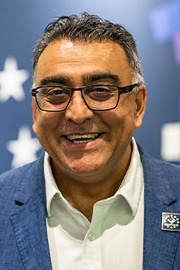 As CEO of ELRIG, Sanj's role is to help fulfil ELRIG’s vision of providing a communication forum for the UK drug discovery and research community. ELRIG is proud that it runs so many meetings per year, each of which has innovative technology as a theme, and world-renowned speakers presenting their research.
As CEO of ELRIG, Sanj's role is to help fulfil ELRIG’s vision of providing a communication forum for the UK drug discovery and research community. ELRIG is proud that it runs so many meetings per year, each of which has innovative technology as a theme, and world-renowned speakers presenting their research.
ELRIG is supported by the vendor community and remain strictly not-for-profit, with the board providing its help and support without remuneration. ELRIG is a world class organization and has links to other LRIGs, as well as other scientific bodies.
Sanj has been involved with ELRIG for over 10 years and is also the General Manager of DiscoveRx Europe, which gives him the skills needed to help manage ELRIG operationally as well as strategically, as he is very well connected in the drug discovery industry.
About Clare Cockerham
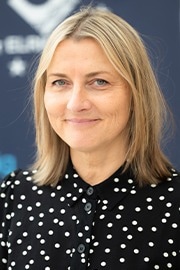 Clare Cockerham is the Programme Manager for ELRIG with the responsibility for the programming and speaker management for the ELRIG Conferences, Forums and Networking events. She is a member of the ELRIG Science Strategy workgroup, Networking group and the Marcom Team. Clare has worked with ELRIG for over 6 years and comes from a background in IT Service Management and PRINCE2 Project Management.
Clare Cockerham is the Programme Manager for ELRIG with the responsibility for the programming and speaker management for the ELRIG Conferences, Forums and Networking events. She is a member of the ELRIG Science Strategy workgroup, Networking group and the Marcom Team. Clare has worked with ELRIG for over 6 years and comes from a background in IT Service Management and PRINCE2 Project Management.
About Tara Shanks
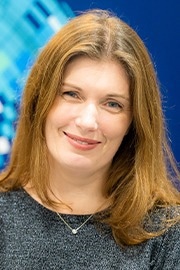 Tara Shanks is an Events Manager at ELRIG, helping to ensure that event organization runs smoothly. Her role also extends to finance-related responsibilities such as the day-to-day finance, budgeting and forecasting processes.
Tara Shanks is an Events Manager at ELRIG, helping to ensure that event organization runs smoothly. Her role also extends to finance-related responsibilities such as the day-to-day finance, budgeting and forecasting processes.